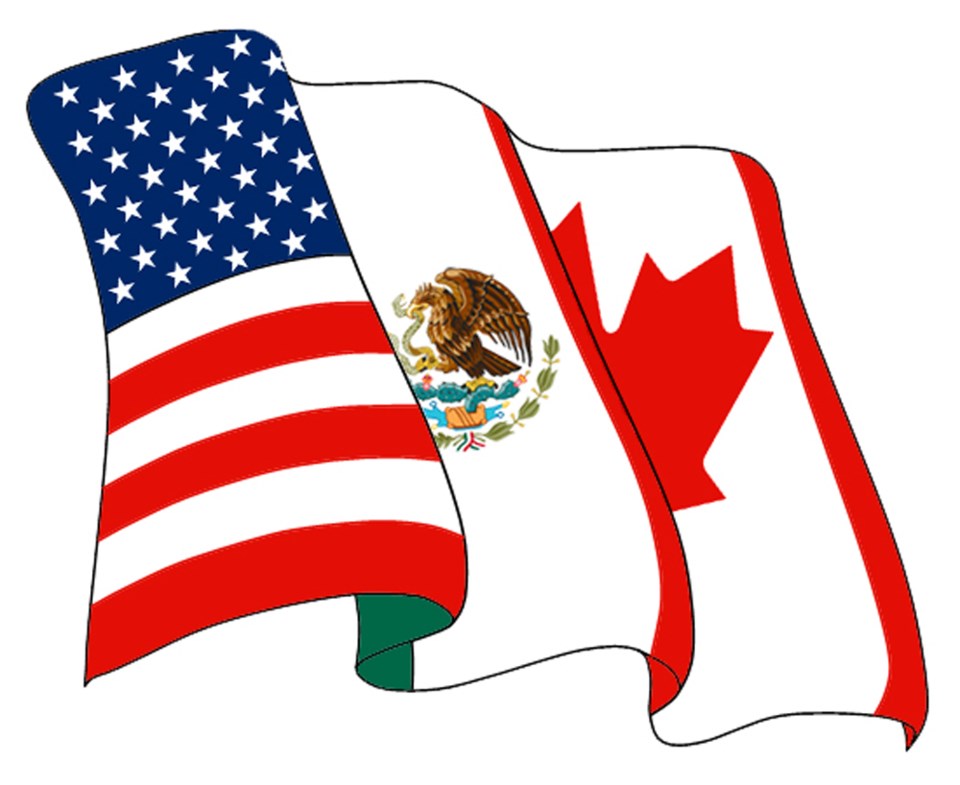Whether good or bad, there will be changes when Canada, the United States, and Mexico reach an agreement on the North American Free Trade Agreement (NAFTA).
And Saskatchewan businesses have to be prepared for that, says Steve McLellan, Chief Executive Officer of the Saskatchewan Chamber of Commerce.
“Be aware that when you have a high reliance on a particular market if it’s in the U.S. to be cognisant of the merits of expanding your markets into other jurisdictions.”
Especially when Canadian and Saskatchewan businesses are dealing with U.S. suppliers and distributors, they may be impacted and having the deal renegotiated means a change in trading patterns that have been successful in the past, says McLellan.
“It means we shouldn’t be reliant on a single partner. Yes, they’re a huge market. Yes, they’re right next door...new markets are always a good business practice.”
Big Saskatchewan sellers to the U.S. will still be in demand when it comes to exporting, says McLellan. While it may be under different circumstances, McLellan is confident that Saskatchewan markets will prevail.
However, this is still a lesson learned, he says.
“We should diversify our markets and our supply chains. By doing so we’ll come out of this stronger no matter what happens with the actual deal.”
The U.S. is Saskatchewan’s biggest trading partner by far, says Chris Dekker, Chief Executive Officer of the Saskatchewan Trade and Export Partnership (STEP), with over 50 per cent of Saskatchewan exports shipped to the U.S. in 2016.
Negotiating a new NAFTA has not been easy but progress is still being made, but “the fact that they’re still at the table is a sign of progress,” says McLellan.
A new deal has yet to be signed as talks move to Montreal at the end of January after meetings in Mexico City in November and previous negotiations have gotten little done, says Dekker.
At this point, Dekker is not sure where negotiations will take Canada and Saskatchewan but there are several points of contention continuing to stall negotiations with the independent settlement dispute mechanisms, supply management, and a possible renewal of the agreement after five years all on the table.
Five years is a short time frame in which to see the agreement renewed, says McLellan, and could mean that long term deals are at risk in order to placate “short term political issues.”
We cannot have that, says McLellan.
“We’d need to have a dispute mechanism that is trusted and fair for all parties independent of politics or national priorities.”
McLellan says Trump also sees a trade imbalance between the partners but Trump has to realize the importance Canada and Mexico plays in the United States market, says McLellan.
“Technically there is a difference between how much we import and export. But the reality is that shouldn’t be a sticking point...The reality of it is Canada and the U.S. are great trading partners.”
Even with the tension that is plaguing negotiations, McLellan is confident that a deal will be made.
For McLellan, the best possible outcome would include all the elements that needed to be updated, like online payment processes, as well as long term deals with fair arbitration and dispute mechanisms well in place.
Without a deal in place, McLellan says that Canada will be left to deal with just the U.S. and North America is not one trading area.
Even with just a deal between U.S. and Canada, it would be a shadow of a deal without Mexico included, he says.



